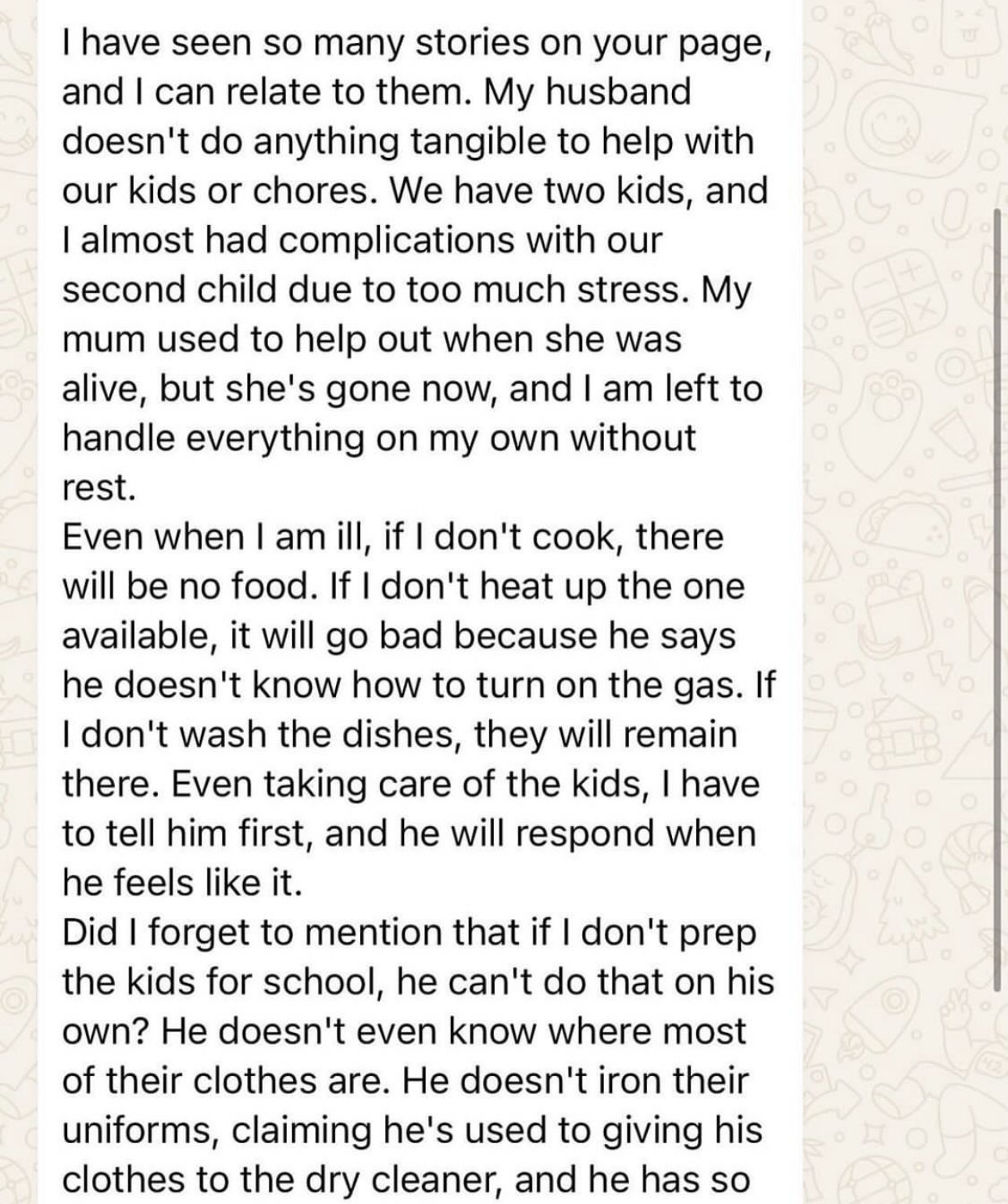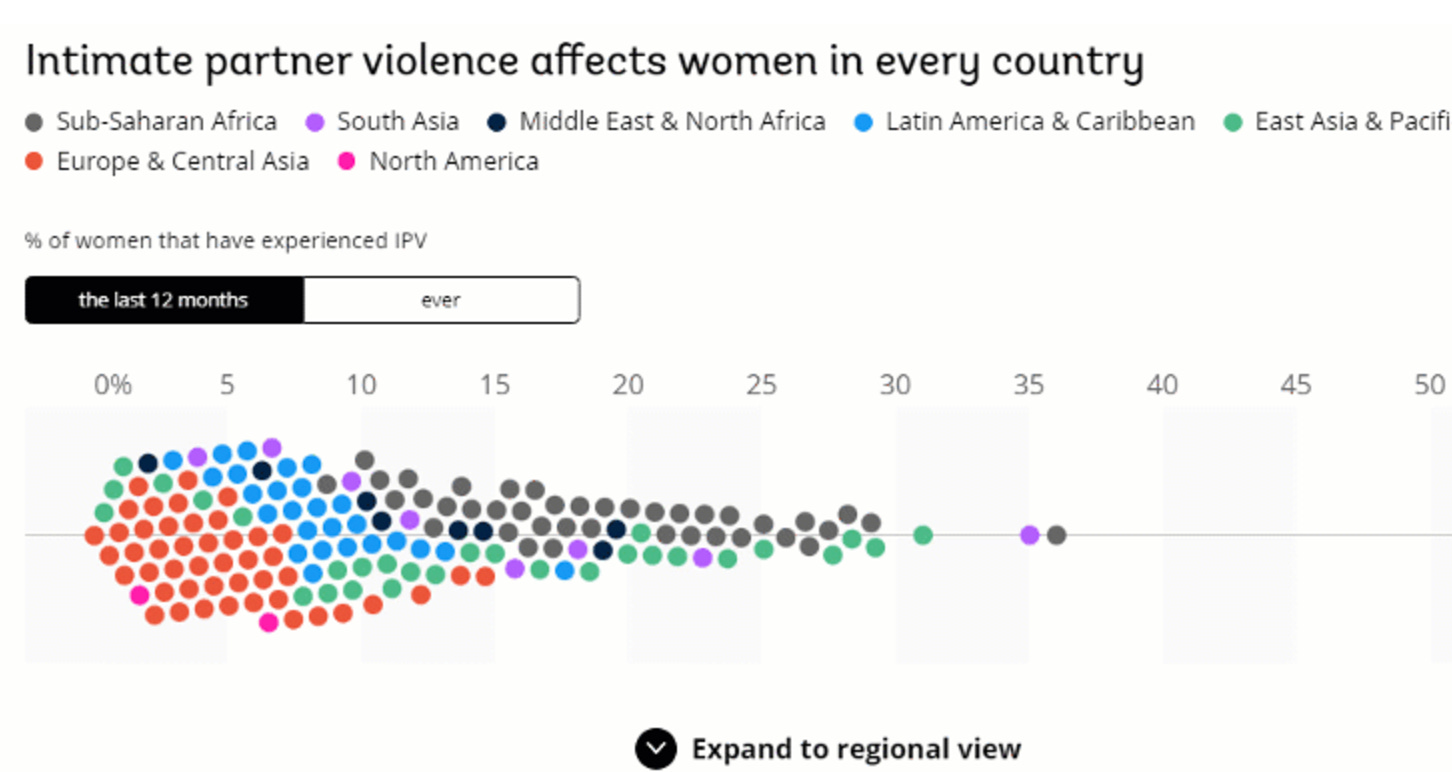This week, as we shine a spotlight on gender-based violence (GBV), we must not overlook one of its subtle yet pervasive links—caregiving. Across cultures and societies, caregiving responsibilities fall disproportionately on women, often as an unspoken expectation. From caring for children and elderly parents to managing households, this labor is often demanded, not shared, and its absence or perceived inadequacy can trigger acts of control, coercion, or even violence.
Imagine this: a woman feeling physically unwell or emotionally drained, yet expected to cook, clean, or care. When she cannot meet these demands, she may face punishment—whether overt, like verbal or physical abuse, or covert, like financial control or emotional neglect. This imbalance not only fuels the cycle of violence but also leaves women trapped in a system where their care becomes their vulnerability.
Social reactions to women who do not conform to societal norms of unpaid care and domestic work lead to an increase in domestic and intimate partner violence. In different social economic settings in Africa and Asia, both women and men show disturbing acceptability for violence against women who fail to perform domestic chores at the household and community level. Women’s unemployment or greater casualization of their work can further entrench their role as carers and increase their exposure to gender-based violence, making it harder to escape it.
Take the case of this mom below whose partner has resorted to weaponized incompetence, and who eventually resorted to physical and emotional abuse when care wasn’t provided on time.
The Numbers Speak
Globally, women perform the majority of unpaid care work, limiting their opportunities for paid employment and personal growth. This imbalance often leaves them financially dependent, exacerbating their vulnerability to abuse.
In the U.S., 59% of women report that caregiving responsibilities fall mainly on them, compared to just 29% of men.
The stress and physical demands of unpaid caregiving have been linked to mental health issues such as anxiety and depression.
In regions like the Caribbean and Pakistan, cultural norms that equate a woman’s worth with caregiving often result in diminished power within the home and increased exposure to partner violence.
During the COVID-19 pandemic, the caregiving burden on women intensified, correlating with a rise in domestic violence incidents during lockdowns.
Why It Matters
Caregiving is not inherently oppressive; it is the lack of recognition, respect, and redistribution that transforms care into a burden for women. Gender-based violence thrives in environments where power is unequally distributed, and caregiving expectations often become tools for exerting control. Violence against women and girls is a global pandemic. Almost one in three—or 736 million—women above the age of 15 across the world have experienced intimate partner violence or non-partner sexual violence at least once in their lifetime. More than one in four women have suffered violence at the hands of their partners.
How Can You Help?
Raise Awareness: Share the hidden connections between caregiving and GBV in your circles. Recognize that unshared care is a structural issue, not a personal failure.
Advocate for Redistribution Of Care: Encourage equitable caregiving models at home and workplace policies that reduce women’s unpaid labor. This includes ensuring men step into care and caregiving roles, this shared responsibility and partnership on the homefront will lead to immense gains towards gender equity.
Support Survivors: If you know someone struggling under the weight of caregiving and experiencing violence, offer them support and direct them to local resources for safety and healing.
Together, we can break the cycle where care becomes control. We can build a society where caregiving is an act of love, not a source of violence.
The Care Gap is authored by Blessing Oyeleye Adesiyan, a former Chemical Engineer turned Care Economist combining heart, data, technology, and policy to connect and advance care and the care economy.









Thank you, Blessing for your work 'merging heart with hard data to address the pressing challenges of caregiving'. THIS article is essential reading and a vital Call to Action. Thank you for the references and statistics. I'll share these and your article with others.
I want to share that Financial handcuffing, Emotional gaslighting, and Verbal Abuse are common themes I've encountered in online carer forums. Online virtual communities and empathy are lifelines for isolated caregivers. They help them see beyond their situation's confines and seek expert support.
I hope we can empower ALL caregivers and their allies by raising awareness and sharing resources/information from experts —as you've done here and in my publication Carer Mentor.